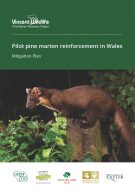
This Pine Marten Recovery Project Mitigation Plan has been prepared by The Vincent Wildlife Trust (VWT) as part of its project to restore self-sustaining populations of pine martens to England and Wales. The purpose of the Mitigation Plan is to provide information about the relationship between pine martens and people.
Download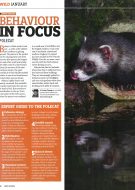
VWT’s Mustelid Conservation Officer, Lizzie Croose, gives an expert briefing on the polecat for BBC Wildlife Magazine.
Download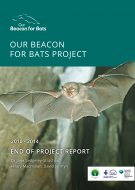
This report presents the achievements and outcomes of the Trust’s Our Beacon for Bats project, which involved local people in the conservation of lesser horseshoe bats in the Usk Valley in south Wales.
Download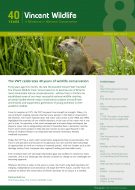
This month the VWT celebrates 40 years of wildlife conservation. In this issue there are the latest updates from the Pine Marten Recovery Project and exciting news from our bat projects and reserves. It also includes details from our National Polecat Survey and study tours to Poland, Luxembourg and Germany.
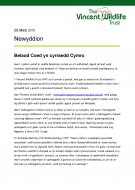
Mae’r cynllun cyntaf ar raddfa Brydeinig i achub un o’n anifeiliaid cigysol prinnaf wedi cychwyn. Mae belaod coed brodorol o’r Alban yn dechrau ar fywyd newydd yng Nghymru, ac mae rhagor ohonyn nhw ar y ffordd!
Download
This report outlines our achievements in 2014, explains our governance arrangements and outlines our future plans. The VWT’s audited financial statements for 2014 provide financial details of our work during the year and how it was funded.
Download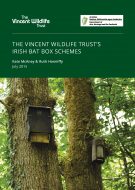
This report presents an analysis of The Vincent Wildlife Trust’s Irish bat box project and results of an online survey and was possible due to a grant from the Department of Arts, Heritage and the Gaeltacht.
Download
Practical measures to protect and benefit the pine marten. This leaflet aims to provide guidance on how to assess and minimise potential impacts of forest operations on the pine marten and recommend a set of measures to benefit martens that can be use d by forest managers and owners.
Download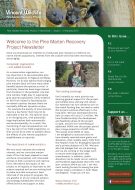
The second in the Pine Marten Recovery Project newsletter series. This issue provides an update from our Pine Marten Project Manager, Jenny MacPherson, and Pine Marten Project Officer, David Bavin. Also included is news on a pine marten study tour to the Netherlands, and an insight into VWT pine marten work taking place in Ireland.
Download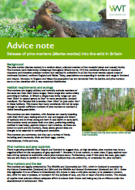
The pine marten is a medium-sized, arboreal member of the mustelid (stoat and weasel) family. Pine martens were historically widespread throughout Britain but by 1915, the combined effects of woodland clearance and intensive predator control had resulted in extinction in all but the most remote upland areas of northwest Scotland, northern England and Wales.
Download